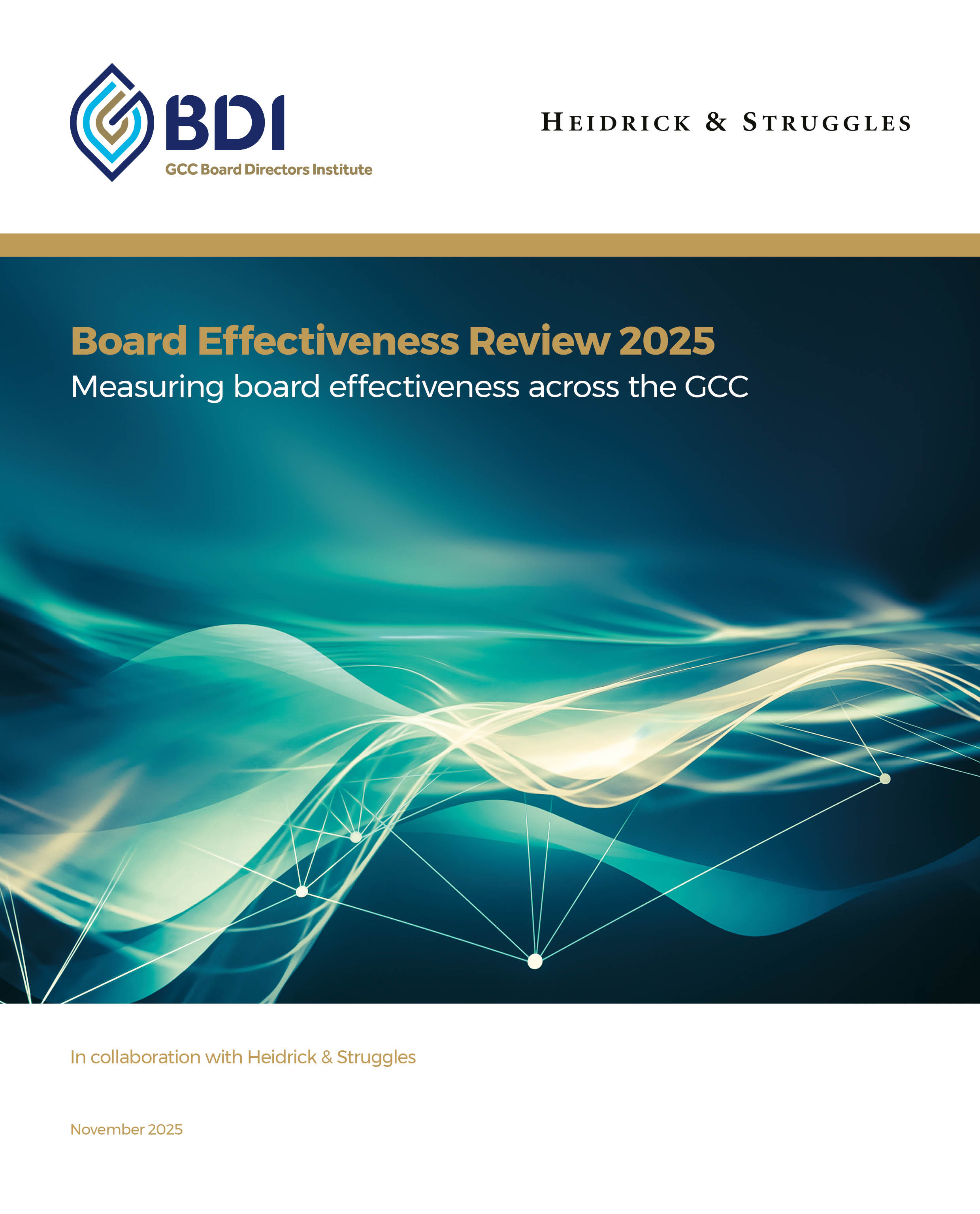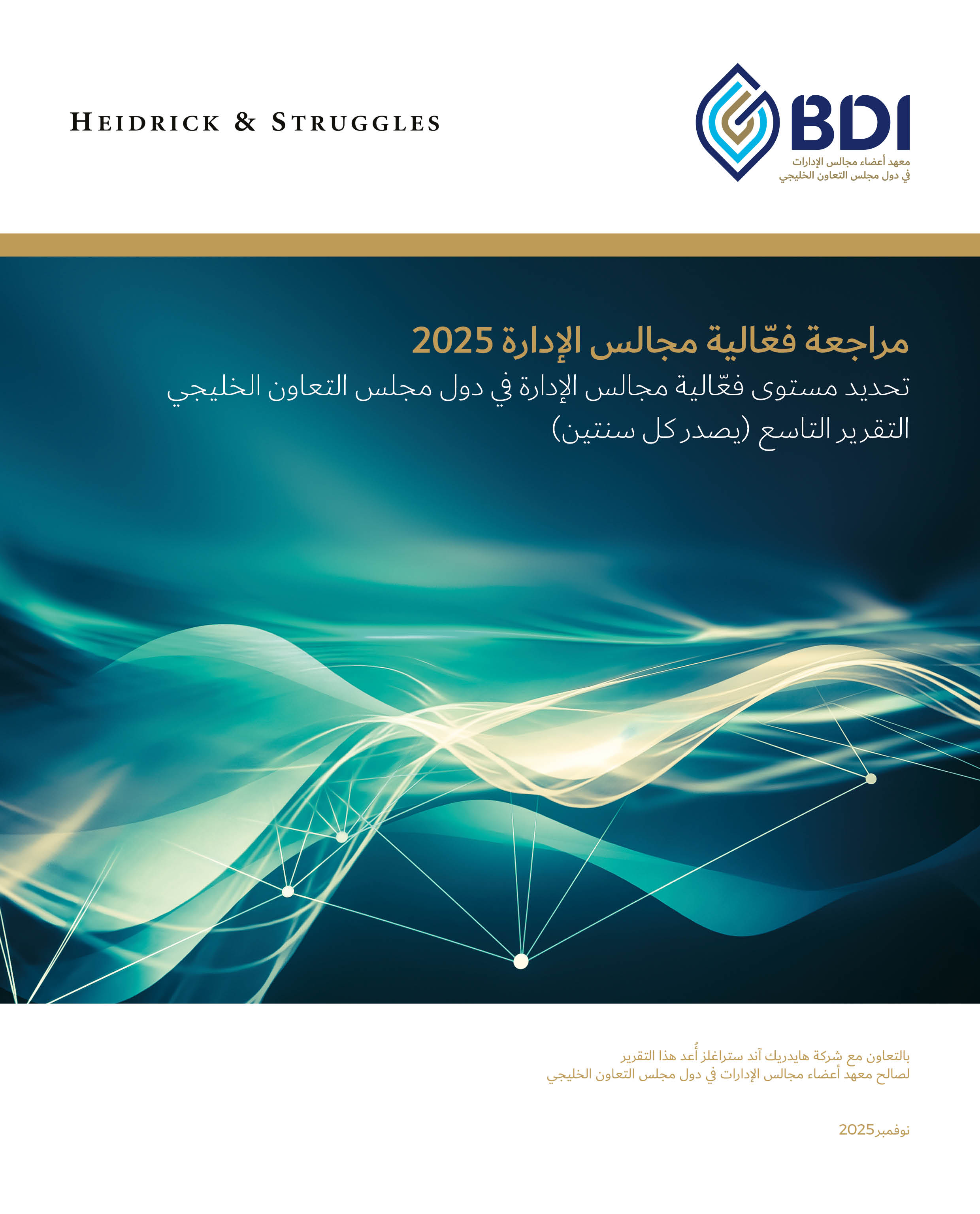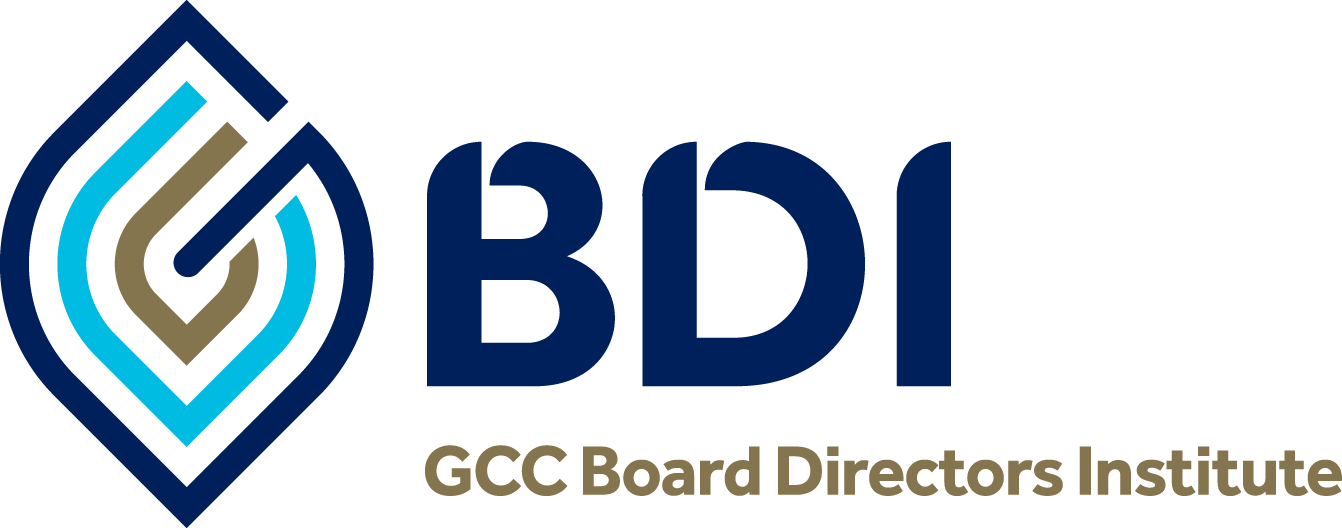GCC BDI Board Effectiveness Review 2025

GCC BDI announce the launch of “Measuring Board Effectiveness Across the GCC”, GCC BDI's 9th survey on board effectiveness, representing 18 years of the institute promoting professional directorship and corporate governance across the GCC.
About the report
This section of the GCC BDI Board Effectiveness Review 2025, developed with insights from directors and governance professionals across the region, explores how organisations within the GCC are navigating a future rich with opportunity, albeit coupled with uncertainty, shaped by unprecedented technological innovation and an evolving geopolitical landscape.
As the governance environment continues to mature, new regulatory requirements are compelling boards to sharpen their focus on governance, strategy, and resilience, as they adapt to a complex mix of market, regulatory, and geopolitical shifts.
Key findings
Stronger board performance: More than three-quarters (78%) of respondents to this year’s survey observed strengthened board performance over the past two years, up slightly from 76% in 2023. At the centre of the boardroom agenda is a continued effort to improve strategic oversight and ensure long-term organisational health. Boards are increasingly expected to deliver not just on compliance, but also on purpose and resilience.
Broadening board expertise: Boards are actively seeking to enhance expertise in strategic thinking, finance, performance management, legal and regulatory knowledge, and artificial intelligence (AI). Heightened investor scrutiny of board composition and accountability is prompting directors to diversify their skill sets, while regional regulatory frameworks continue to converge with international norms.
Persistent governance gaps: Despite clear progress, familiar challenges remain. The survey findings indicate ongoing needs in board composition, formal evaluation, and renewal mechanisms. While key governance structures, such as charters, committees, meeting protocols, and agendas, are firmly in place, questions persist about their depth of impact and consistency of application.
Diversity and sustainability: Diversity and sustainability remain enduring boardroom priorities. Efforts to diversify board composition and embed ESG principles are ongoing but uneven. While many boards are expanding functional and international diversity, gender and age diversity lag behind. Similarly, while most boards recognise the value of sustainability, many are still in the early stages of embedding ESG into strategy and governance structures.
The AI and geopolitical challenge: Rapid technological change, especially the rise of AI, is reshaping the corporate agenda. Boards are cautiously exploring AI’s strategic potential but face skills gaps and limited expertise. Parallel to this, geopolitical volatility has emerged as a key risk area, prompting boards to strengthen resilience planning. However, systematic integration of geopolitical risk into decision-making remains a work in progress.
A region in transition: Collectively, these findings highlight a region in transition - one where a growing appetite for modern governance is enabling boards to meet the demands of a turbulent yet opportunity-laden landscape.
Download an exclusive copy in English and Arabic.
 |  |  | |||
 | |||||
Watch the video to discover how boards across the GCC can strengthen their effectiveness through more proactive succession planning, increased board diversity, and stronger oversight of AI and geopolitical risks.
